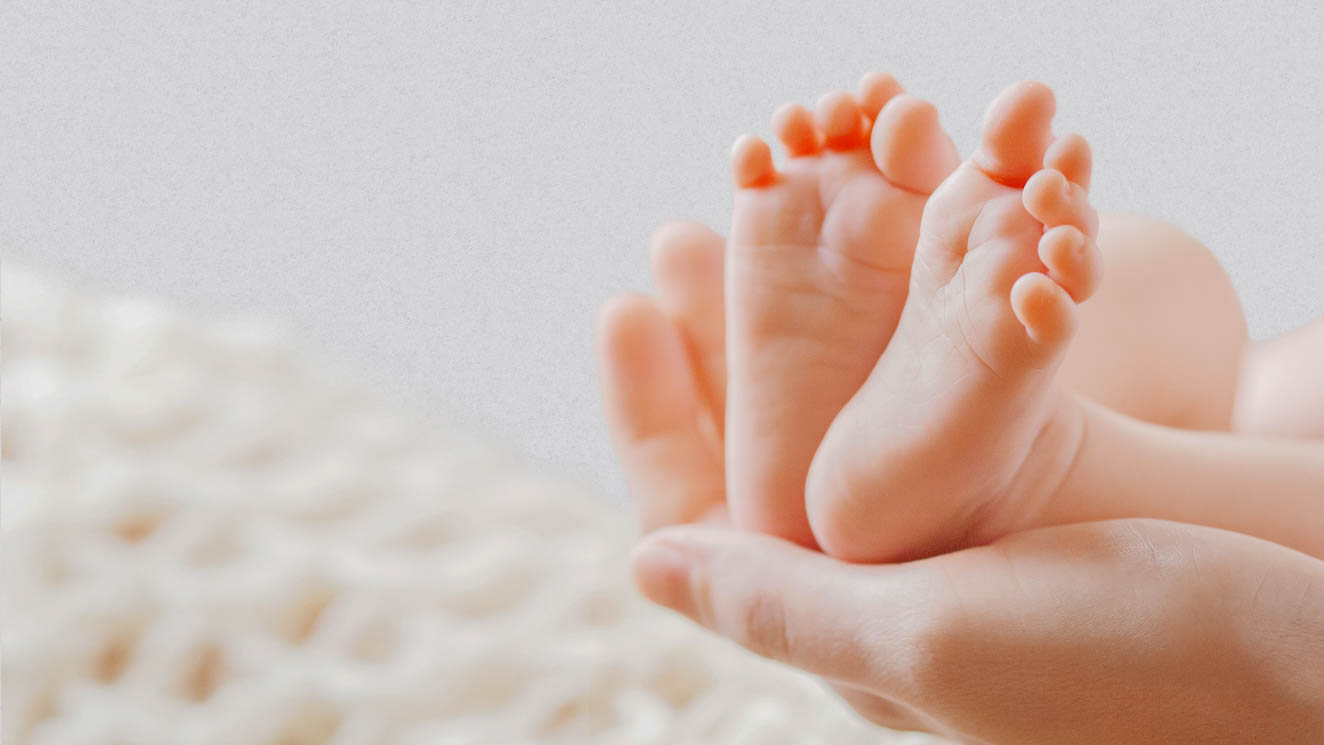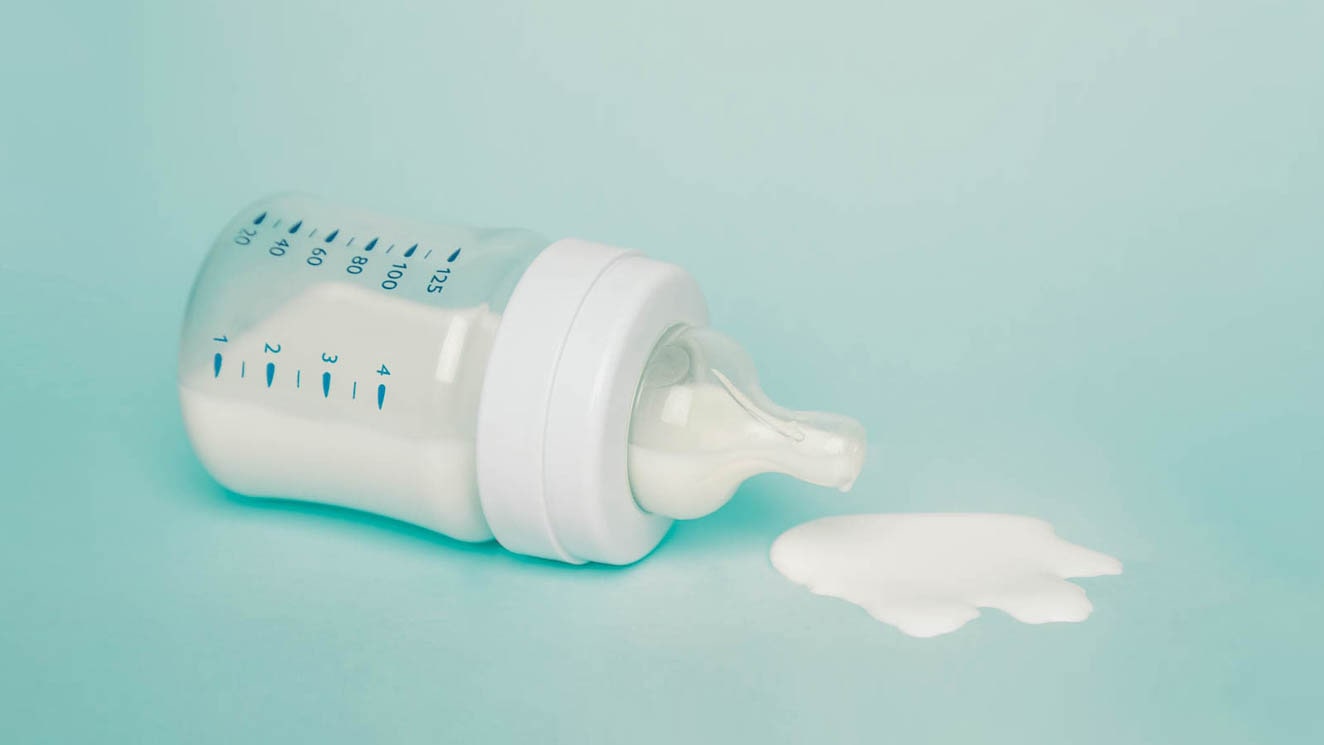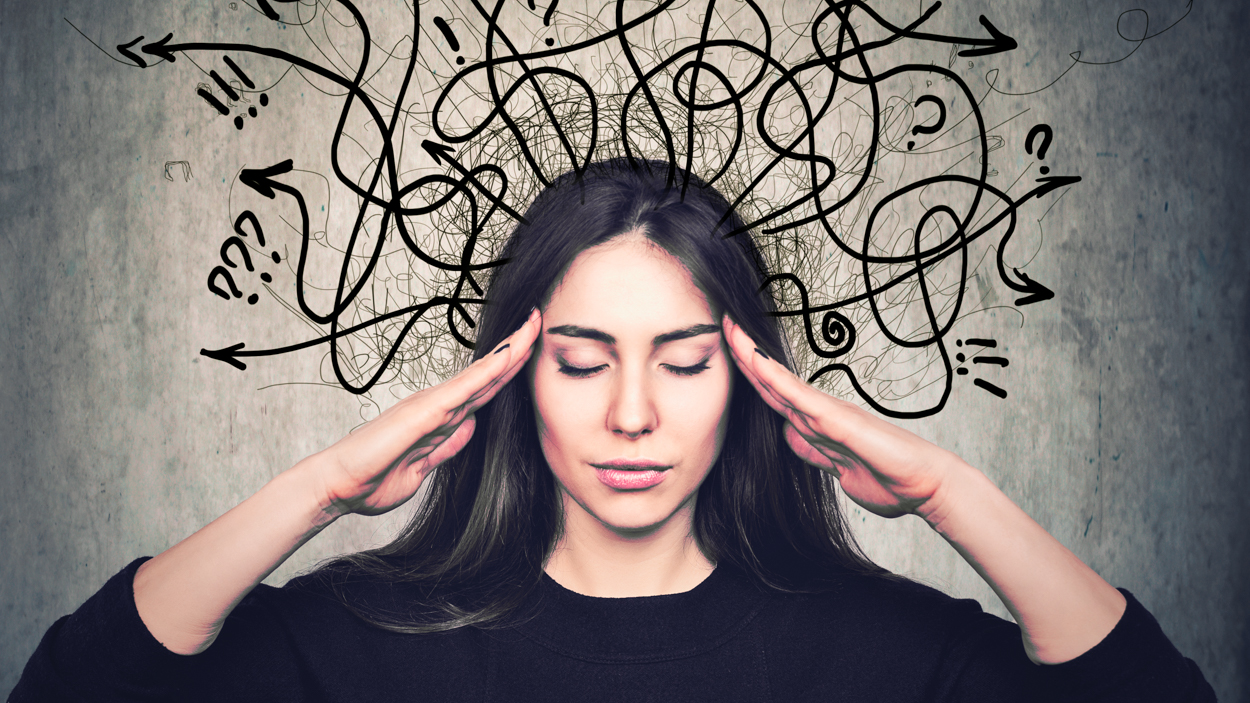

My first pregnancy was a surprise. I was taking birth control, however my inability to take said pill every single day at exactly the same time had finally caught up with me. Initially the pregnancy was quite a shock, but I had always dreamed of becoming a mother, and my partner Mike (who is now my husband), had always dreamed of being a dad. We both got over the surprise-factor pretty quickly, and spent the following months in that pre-baby, surreal honeymoon state, where nothing else seemed to matter other than coming up with baby names and loving on each other.
My pregnancy ailments were pretty standard: morning (aka all-day) sickness for the first 16 weeks, exhaustion and heartburn, which I combated with copious amounts of ice cream and Tums. Being one of the first of my group of friends to get pregnant, there was no one to give me a heads up about what to expect after the baby arrived. And truth be told, even if someone had warned me, my naive-mommy-to-be-has-it-all-figured-out-self probably wouldn’t have heard a word of it, anyway. Pregnancy wasn’t always physically comfortable for me (is it for anyone?), but I was incredibly grateful regardless, and beyond excited about meeting our sweet baby girl.
Birthing day arrived and I planned on it being the best day of my life. I really wanted to go into labor naturally, and luckily was able to have that experience. I wasn’t dilated at all leading up to that day, though, and as the hours wore on, that didn’t change much, which was disheartening. I labored at home for nearly 12 hours, and by the time I was admitted to the hospital my contractions were coming fast and hard, yet my body was still only at 2cm. This was surprising to the nurse, and I was given pitocin and an epidural.
My labor turned out to be longer and more eventful than I could’ve imagined. At around midnight of that first night in the hospital, my baby’s heart rate dropped for an extended period of time, and a team of nurses came rushing in. No one spoke to me as they moved my body swiftly and injected me with something that would not only raise the baby’s heart rate, but mine as well. I never slept that night or the following day. By the time my daughter was born, at 6:18pm the following evening, I had been awake for 36+ hours.
After delivery, I was so delirious that when they transferred us to the maternity ward, I thought I was in a hotel room rather than a hospital. I was concerned about disturbing the ‘front desk’ person, who was actually the on-duty nurse, who had to remind me that tending to me was her job. I don’t know if the exhaustion contributed to the beginning of my postpartum anxiety, but there are certainly better mental states to be in when embarking on motherhood.
The exhaustion never really subsided from that point on. Mike was working and in school full-time at that point. He was home with us for one week and then it was game-on. I’m on the west coast, my family on the east coast, and while I had visitors come for a week here or there, I was alone with the baby most of the time. I was instructed by our pediatrician to stay home for the first 6-8 weeks as a precaution against germs and sickness, and this literally sounded like a death sentence to me. Did he really expect me to not so much as step foot into Target? A cafe? Anywhere for two months? I am a social creature by nature, and while I do love my alone time, I require human interaction to keep my sanity. (Side note: we switched pediatricians not too long after, and I now know that I could have taken his advice with many grains of salt).
I was aware of the ‘baby blues’ and I did my best to curb those feelings on my own by getting outside for walks every day, and trying my hardest to stay on top of keeping our home livable. Everyone insisted I not worry about the piled-up dishes in the sink and the mountainous heaps of unfolded laundry everywhere. But I couldn’t physically or mentally relax in the midst of such disarray, and I had this underlying feeling that I should be able to tend to it all.
As the weeks passed, my overwhelm snow-balled. Several times a day I felt like a failure. It was as if I believed that it was my job to prevent my baby from crying. Ever. And when she did cry, it would literally hurt my skin — not because it was annoying, but because it tortured my soul to think that she was sad. (Note: babies cry for a LOT of reasons, and it doesn’t mean that they are sad.) Meanwhile, I saw other moms on social media, moms who were out and about with their well-dressed babies who seemed to never cry. I remember one mom posting about the joys of breastfeeding. I legitimately thought she was lying because I was at home struggling to keep my baby awake on the boob, barely pumping enough to freeze, and wondering what the heck was wrong with us. I hated that I was comparing myself and even my newborn to others, but it was like an obsession. It seemed like everyone had this mom-gig figured out except me.
My nervous and unsettled feelings were unrelenting. In any given situation, I was concerned about the worst-case scenario happening. I would imagine myself falling down a flight of stairs while holding my baby. I would constantly check to make sure she was still breathing during her sleep. I was hyper-sensitive to her experiencing the slightest bit of discomfort (the girl probably had the dryest diaper in town).
Eventually, I started to wonder if maybe I was experiencing something a bit more than ‘baby blues.’ Postpartum Depression crossed my mind (I had never heard of PPA), but I’d learned that in PPD, women didn’t feel connected to their babies and didn’t want to hold them. (I now know that there are many other manifestations of PPD.) That wasn’t how I felt; I felt very connected to my daughter. What I knew was that I wasn’t enjoying motherhood. Sure, this was a time of major transition and upheaval, but I wasn’t supposed to be miserable, right? And I felt guilty for feeling that way, because I had always wanted to be a mother and here I sort of had it all, yet I was unhappy and lonely. I was stuck in my head almost 100% of the time, constantly criticizing my every move and feeling. It was all-consuming.
I finally reached a breaking point around six weeks postpartum. I had been given a three hour window to take a nap while my mother-in-law watched my baby. I lay in that bed completely exhausted, but unable to fall asleep due to the paranoid and obsessive thoughts that raced around my head. So there I stayed, opening and closing my Facebook app (it was 2011), comparing myself to another mom I knew. The self-talk I was engaged in was cruel, and nothing I would ever dare say to someone else, but I couldn’t turn it off. I also couldn’t stop straining to hear whether my daughter was crying. All these things were swirling around, and I knew I needed to sleep, yet I couldn’t. I felt like a prisoner in my own mind. Finally I became so uncomfortable that I reached out to my Ob/Gyn.
When I finally made that call, I was met with words of sympathy and compassion from the on-duty nurse. She assured me how common this was, and even shared her own experience with PPD/ PPA. Just hearing her words provided some much-needed relief. I wasn’t crazy; there was a solution. Eventually I was prescribed Paxil, which was incredibly effective for me at the time. I know people don’t always like to talk about medication, but it is a part of my story. For me, Paxil took away the obsessive thinking. It gave me peace, and made me feel like myself again. It didn’t make my life perfect or stop my baby from crying or waking up in the middle of the night, but it took away the feeling that I was going to DIE when those things happened. I stayed on Paxil for most of my first year of motherhood.
Here’s what I know. Treating PPA or PPD is not one-size-fits-all. Only you know what it is like to be in your body and in your mind. But there is nothing to be ashamed or secretive about, even though it may feel that way when you are in it. What I also know is that there is help available. You do not have to suffer through the first weeks or months or year of motherhood. What I’ve learned from walking through PPA is that it doesn’t define me, or make me a worse mother or human. In fact, quite the opposite. Taking a stand for myself and my mental health made me stronger, more self aware, and has allowed me to take a stand for other mothers — friends of mine, readers of my blog — who are going through similar experiences. I can’t tell you how many people have reached out to share their own stories, hardships and victories.
What was once a place of shame and darkness for me has become one of my greatest assets. Choosing to receive help was incredibly humbling, but ultimately it filled me with compassion and a desire to stand as a source of experience, strength and hope for women who may feel like they don’t have a voice, or who are still living in the perceived shame of PPA.







